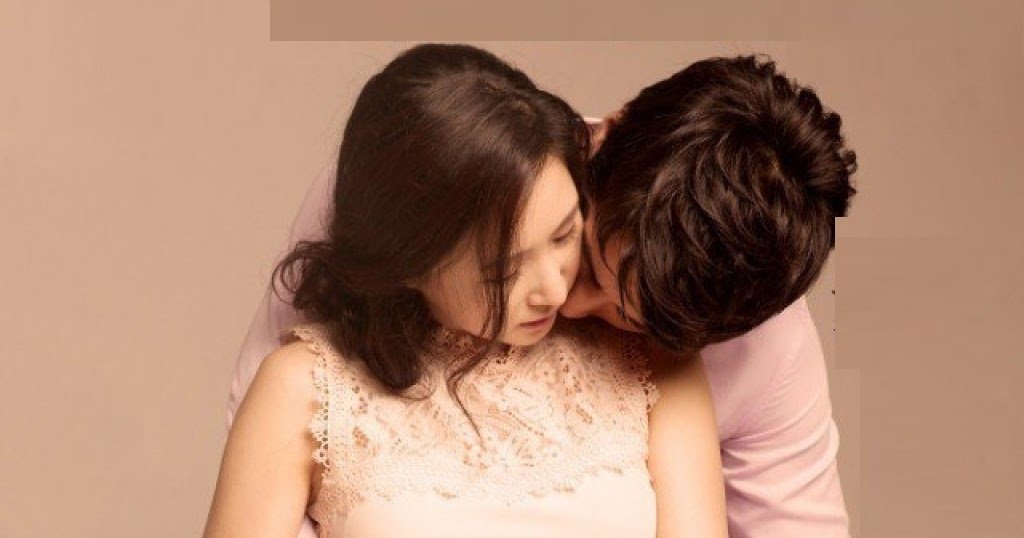Understanding “Wife Lovers” – A Complex Phenomenon in Relationships and Society
The term “wife lovers” is often associated with various cultural, emotional, and psychological dynamics in relationships. It refers to individuals or partners who display an intense affection, admiration, and care for their wives. However, this term can also carry different connotations depending on the context, such as a deeper exploration into non-traditional relationships, open marriages, or even the dynamics of infidelity. In this article, we will explore the multifaceted nature of “wife lovers,” examining its roots in traditional relationships, its implications in modern society, and its evolving role in human interactions.
Defining “Wife Lovers”
At its core, the term “wife lovers” is a phrase used to describe men who have a strong emotional or physical attachment to their wives. This attachment may go beyond conventional affection and can indicate deeper admiration, passion, and commitment. However, the phrase may have diverse meanings based on the context in which it is used. Let’s break down the different interpretations of the term.
1. The Devoted Husband
In its simplest form, a “wife lover” can refer to a man who deeply loves and cherishes his wife. He may show affection through acts of kindness, loyalty, and support. This kind of “wife lover” is often depicted in popular culture as the ideal husband—one who places his wife’s happiness and well-being above all else.
In this context, being a “wife lover” can indicate a commitment to nurturing the emotional bond within the marriage. It is a demonstration of care, not necessarily limited to physical attraction, but also emotional and psychological support.
2. The Enthusiast of Marriage
A “wife lover” can also be someone who is passionate about the institution of marriage itself. This type of individual views marriage as a sacred commitment and holds the concept of marital love in high esteem. For such people, being a “wife lover” means treating the wife as a partner for life and ensuring that she feels valued and respected.
This could include focusing on maintaining a healthy relationship and striving to uphold traditional values of loyalty, commitment, and mutual respect.
3. The Role of “Wife Lovers” in Non-Monogamous Relationships
In a more complex setting, the term “wife lover” can extend to the dynamics within non-monogamous or open relationships. In some cases, a husband or partner may encourage other individuals to show affection toward his wife as part of an open relationship agreement. This situation often arises in polyamorous relationships, where multiple individuals share a connection.
In this context, a “wife lover” might refer to someone who is involved in such an open arrangement, where the primary partner (the husband) is aware and sometimes even supportive of these other relationships. Here, the term is less about traditional devotion and more about mutual consent and emotional boundaries.
4. The “Wife Lover” in the Context of Infidelity

Another, more negative interpretation of the term “wife lover” emerges when considering infidelity. In this case, a “wife lover” may refer to a third party who has an extramarital affair with a married woman. This type of dynamic is often fraught with secrecy, betrayal, and emotional turmoil. The term, in this sense, often carries negative connotations, as it speaks to an undermining of the marital relationship.
Infidelity can manifest in many forms, from physical relationships to emotional connections. A “wife lover” in this context may be seen as someone who contributes to the breakdown of trust and integrity in a marriage.
The Psychological and Emotional Dynamics of Being a “Wife Lover”
Understanding the psychology behind the dynamics of being a “wife lover” requires a deep dive into the emotional, psychological, and societal factors that influence relationships. Here, we will explore the motivations, emotional needs, and expectations that come with being deeply involved in a marriage or relationship.
1. The Need for Validation
One key motivation for someone to be a “wife lover” could be the desire for validation. In a committed relationship, receiving affirmation from a spouse can be a powerful source of emotional satisfaction. For a “wife lover,” this validation goes beyond mere affection—it becomes an integral part of their emotional fulfillment.
This validation might come in the form of praise, appreciation, or admiration, all of which contribute to a positive self-image.
2. The Role of Passion and Desire
Passion and desire also play a critical role in the dynamics of a “wife lover.” Often, people seek out relationships that involve not just emotional intimacy but also physical attraction and desire. In this case, a “wife lover” may be driven by the need to keep the passion alive in their marriage, striving to maintain a deep sexual connection with their spouse.
For some, the presence of passion is a sign of a healthy and fulfilling marriage.
3. The Importance of Trust and Loyalty
Trust and loyalty are essential elements of any successful marriage. A “wife lover” in a traditional marriage is often characterized by unwavering commitment to their spouse. This loyalty creates an environment where both partners feel safe, respected, and loved.
In a healthy relationship, this trust allows the “wife lover” to feel secure in the knowledge that their emotional and physical needs will be met, and that their partner shares the same commitment to the relationship. When these elements are present, a marriage can flourish, offering both partners a deep sense of emotional fulfillment.
Cultural Perspectives on “Wife Lovers”

The concept of being a “wife lover” varies across different cultures, and what one society considers ideal may not hold true in another. Let’s explore how different cultures view the dynamics of love and marriage, and how the idea of “wife lovers” fits into these varying perspectives.
1. Traditional Views on Marriage
The emphasis in these cultures is on mutual respect and the role of the “wife lover” as the central figure in maintaining the sanctity of the marriage.
2. Modern Perspectives on Marriage and Relationships
In contrast to traditional views, modern perspectives on marriage often place a higher value on individual freedom and personal growth. In these societies, the concept of a “wife lover” may be more fluid, with people exploring non-monogamous relationships or open marriages. Here, the dynamics of love, attraction, and commitment can vary, and the role of the “wife lover” can take on new forms.
For instance, some individuals may engage in consensual open relationships, where both partners seek emotional and physical connections outside of the marriage. In such contexts, a “wife lover” may be part of a broader network of relationships where the emotional bonds are complex and multifaceted.
3. The Influence of Media on the “Wife Lover” Concept
Popular media, including movies, television shows, and books, often shape our understanding of relationships and the dynamics between husbands and wives. These portrayals often emphasize the emotional and physical devotion of the “wife lover” and romanticize the idea of an idealized marriage.
However, media can also depict the darker side of relationships, including infidelity and betrayal. The media’s portrayal of these dynamics can have a profound impact on how society views marriage, love, and relationships.
The Challenges Faced by “Wife Lovers”
While the concept of a “wife lover” may seem appealing in many ways, there are challenges that come with such deep emotional and relational investments. These challenges can vary depending on the nature of the relationship and the roles individuals play within it.
1. Managing Expectations
One challenge that a “wife lover” may face is managing expectations. In traditional marriages, there is often pressure to fulfill certain roles and obligations—emotional, financial, and domestic. Balancing these expectations while trying to maintain a loving and passionate connection with one’s wife can be a difficult task.
This challenge can become even more complex in non-traditional relationships, where expectations around love and intimacy may differ from the norms.
2. Communication and Boundaries
Effective communication is essential in any relationship, and this holds true for the “wife lover” as well. Clear communication about needs, desires, and boundaries is crucial to maintaining a healthy dynamic. Without these conversations, misunderstandings and unmet needs can arise, leading to frustration and potential conflict.
3. Overcoming Jealousy and Insecurity
These feelings can create tension and affect the relationship’s stability. Addressing these emotions openly and honestly is important to keep the relationship balanced and secure.
Conclusion
The term “wife lovers” can represent a wide range of emotional, psychological, and relational dynamics. Whether describing a deeply devoted husband, someone engaged in a non-monogamous relationship, or an individual contributing to infidelity, the phrase encompasses various roles in modern society.
Understanding the complex nature of these relationships, along with the cultural, emotional, and psychological aspects at play, allows for a more nuanced view of human connection and love.
Read More Also: Dan and Shay Wife Died – Complete Biography, Net Worth, and Personal Details
